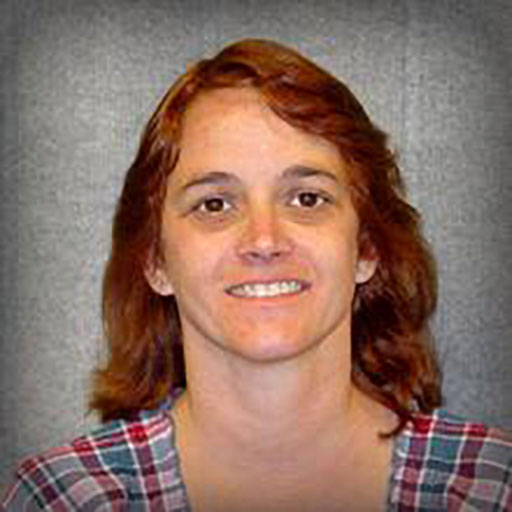Carrie Taylor
Carrie Taylor

Carrie Taylor
Participation in the NSF Ramps and Pathways Project
UNI Class for teachers ~ Ramps and Pathways...
What has R & P meant to you professionally as an early educator?
Ramps and Pathways has connected many of the ideas and concepts that I had been teaching over the years. With a strong math background from the UNI PEMST Program, I learned that the best way for children to learn in HANDS ON… ACTIVE learning. This program is just one more way to show that concept/research is the way to go.
How has R & P changed your approach to early science learning?
I teach more child discovery and exploration lessons than I did before. The rich discussions and peer conversations show that the children are highly engaged and enjoying learning.
What has been your greatest intrinsic reward using R & P with young children?
As quiet timid children begin to come out of their shell and be able to explain what they did and what happened. To see the child trying and trying to get a solution and then the “A HA” moment happens... they get a smile on their face and can’t wait to show someone!
Surprising outcome(s) using R & P with young children?
I was surprised by the few number of un-engaged students. Therefore, there were NOT behavior problems that had to be taken care of. This eliminated one of the teacher jobs so she can teach small groups and not have to worry about behavior issues.
What words of wisdom would you share with early educators implementing R & P for the first time?
Give a problem and then try to step back and let the children teach their peers. Use Bloom’s higher levels of thinking as you ask questions about their actions. LISTEN to the students conversations! I really liked using the check off sheets for the class so that I made sure to visit all the students within a certain period of time.
What should parents and administrators know about R & P?
I invited both parents and administrators into my class whenever possible. I did explain that it might seem “loud” to some but to “listen” to the conversations the students are having. They are excited about learning, sharing, explaining, creating, developing new problems, defining events, journaling and predicting.
- Dec 1990 BA Elementary Education, University of Northern Iowa; Minor: PEMST Mathematic Minor
- July 2001 MA Elementary Education, Viterbo University
- February 2011 Gifted Endorsement, University of Iowa
- KinderCare for 6 weeks as Long term sub (K program)
- Waterloo Community School - 6th grade At-Risk ~ West Intermediate~ 3 years 1993-1996
- 3rd grade ~Roosevelt~ 2 years 1996-1998
- 3rd grade & 2nd/3rd grade Multi-aged Class ~ Lowell ~ 5 years 1998 - 2003
- 2nd grade ~ Irving ~ 6 years 2003-2009
- 2nd/3rd grade Multi-aged Class ~ McKinstry/ Highland ~ 1 year 2009 - 2010
- ELP Reading / Gifted Resource ~ Bunger Middle School / Highland Elementary ~ 2 years (2010 - present)


